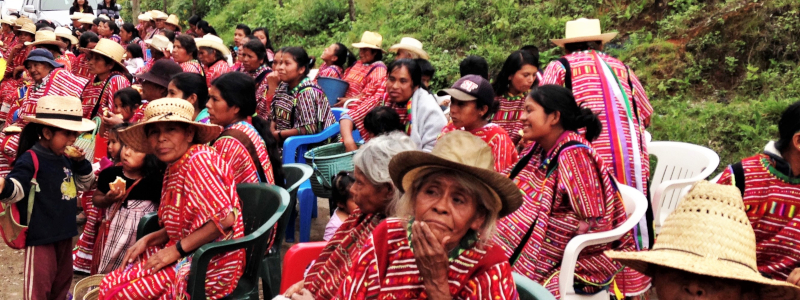In the wild west of Latin America, local missionaries face not only COVID-19 but other dangers that can unexpectedly surface.
Undaunted as they visit homes with the gospel, provide food and medical care or educate children whose teachers the pandemic has driven away, workers from Mexico to Argentina are exposed to patches where the pandemic still rages.
“One of our missionaries was struck hard by COVID-19 because she suffers from other health problems as well,” the leader of a ministry based in Mexico said. “Despite that, she continues in her call to serve Christ among the ethnic groups.”
Several of the ministry’s workers in southern Mexico have been infected with the virus – including members of the leader’s own family.
“On several occasions, the police wanted to kill our missionary, but the Lord guarded him from all harm.”
“However, none of our missionaries has been discouraged, and they continue forward in the work that God has entrusted to us,” he said. “In some cases, rural towns have been closed and do not allow home visits of the families that our missionaries are reaching, but we continue to manage to visit all these families who need the Lord so much.”
As the pandemic closed schools, schoolteachers left for other areas, leaving rural areas already suffering from low levels of education without a way for children to escape the cycle of poverty. Local missionaries have stepped up.
“One of the areas that God has opened in rural towns is the education of children,” the leader said. “The support provided by Christian Aid Mission has been key to purchasing materials that are necessary to equip the missionaries so they can teach the children. This is definitely an area in which we must invest more, because it is a door that God is opening to bring the gospel to indigenous peoples.”
Bullets and Opposition
Persecution from followers of traditional religions remains a force; the ministry has helped two widows whose husbands were killed for sharing the gospel, the leader said.
One of the widows is leading the congregation her husband once pastored.
“We are looking at a way to give her more help since she has three children,” the leader said. “She is very brave, and despite the threats that have been made to her, she is still willing to move forward.”
The ministry is also helping a couple whose home was burned.
“Another of the cases that we have supported in these past months has been a sister who took charge of the church in an ethnic Mixtec community and suffers constant beatings for her faith in Christ,” the leader said. “Recently we helped her to build a greenhouse, and from there she can obtain income for support.”
Amid the hostilities, workers have carried out dental/medical outreaches in different ethnic communities that have been a great help to people, including alleviation of COVID-19 symptoms, he said.
“The truth is, we are surprised in the way that God is supporting us to bring relief to the families of the poorest ethnic regions of Mexico,” he said. “In most rural towns, the brethren have continued to meet weekly, and the medical outreach has served as a testimony of compassion to the inhabitants of the community, in addition to being used to share the gospel, especially in these moments when several are afraid of COVID-19.”
At the same time, the pandemic has increased resistance as villagers fear workers visiting from nearby areas could bring infections.
“People in many cases have become more distrustful, and in some cases, they only let outsiders in for a short time,” the leader said. “Spiritual warfare is very strong; witchcraft and ancient traditions are daily practiced. Armed conflicts in the towns are also a problem for the mobility and security of our missionaries – some bullets have even hit houses, and this reduces visits to families and contacts they have.”
Voice for the Oppressed
In another Latin American country where coronavirus restrictions were still in place in some areas, local missionaries found ways to bring aid, the gospel and social justice, but not without risks of infection and opposition.
“It is forbidden to go out to the streets to preach, but our missionary with his motorbike has traveled several kilometers, entering the jungle hills, carrying the gospel and food supplies,” said the leader of the ministry based in the country, undisclosed for security reasons.
In response to pandemic-related joblessness in a village of about 20 families, a worker began teaching young people how to make cement bricks and build their homes.
“These ventures generated favorable changes in the inhabitants,” the leader said. “After their conversion to Christ, this village has a better way of life, not only spiritually, but in all areas of their lives.”
With assistance from Christian Aid Mission, the ministry also has been able to attend to COVID-19 health emergencies and provide masks and hygiene items, along with feeding the hungry in poor communities.
One area ministry leader pursued social justice by exposing an illegal government practice of putting women, children and elderly men who had no medical indication of COVID-19 infection into isolation centers.
The revelation led to discovery of corruption in the province, the leader said.
“On several occasions, because of this the police wanted to kill our missionary, but the Lord guarded him from all harm,” he said. “The missionary shared the gospel with doctors and lawyers who were accompanying him. On those days his life was at risk, but God allowed nothing to go wrong. After a while, this type of persecution stopped; we give glory to God for this.”
Such workers are braving risks to bring the gospel and aid to unreached people throughout the region. Please consider a donation today to equip and encourage them.

